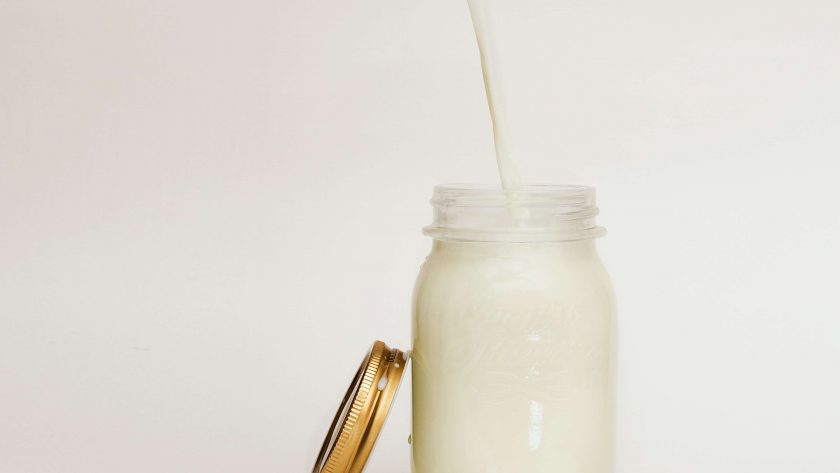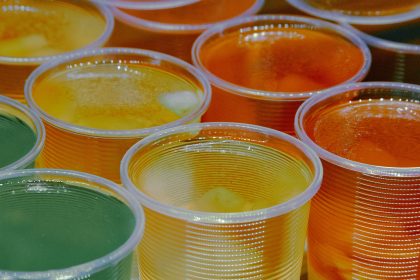Hello there, food lovers! I’m Sophie, your friendly food blogger, and I’m here with a topic that’s sure to intrigue both your taste buds and your brain. Have you ever dipped an Oreo into milk or poured milk over your morning cereal?
You might have heard some concerns about whether milk is as good for your bones as it’s claimed to be. Can you believe it? People are questioning the goodness of the milk we grew up with! So, let’s dive into the question: Does milk really make your bones weaker?
Let’s explore this dairy dilemma together.
Milk’s Role in Bone Health – Is it a Myth?
Imagine this: the idea that milk could make your bones weaker is as strange as putting ketchup on ice cream (though I did try that once, but let’s keep it between us). Surprisingly, various studies have given us a different perspective on this common belief. I’ve done the research so you don’t have to put on reading glasses – unless you’re reading one of my delicious recipes.
When considering bone health, the birria tacos calories may not be your primary concern, but remember that balanced nutrition is key, just like the debate on whether or not milk actually weakens your bones.
The Revelation – Milk Doesn’t Guarantee Stronger Bones
Hold on, milk enthusiasts! It’s time for the truth. Despite what we’ve heard since childhood, milk might not be the ultimate solution for stronger bones. I was just as surprised when I discovered this. It was like finding out that my favorite chocolate cake recipe had beans in it – quite shocking!
The Role of Calcium in Milk and Bones
Milk is a great source of calcium, a mineral that keeps our bones healthy, just like Hulk’s strong physique. It’s as vital to our bones as my trusty whisk is to my baking. Without enough calcium, our bones might become fragile, like a cake falling apart. Just like the question “does queso fresco melt?”, many people are also curious whether milk could potentially weaken their bones, showing that our understanding of dietary impacts is ever evolving.
But here’s the thing: consuming a lot of calcium doesn’t automatically mean super-strong bones. This might sound puzzling, like the idea of putting pineapple on pizza (which I still can’t wrap my head around).
The Calcium Conundrum – Too Much of a Good Thing?
Imagine this: your bones can only absorb a certain amount of calcium each day. After a point, just like when you’ve had too much cake, your body says, “No more, thanks!” Any extra calcium goes to waste or ends up where it shouldn’t, like your kidneys and heart. It’s like squeezing all your kitchen tools into one drawer – not practical at all.
Finding Balance in Your Milk Diet
I’m not trying to scare you away from milk. Think of it as my realization that spinach in brownies can work (trust me on this). It’s not about avoiding milk but finding the right balance, just like not adding too much salt to cookies. You need a pinch, not a tablespoon.
The controversy around milk and bone health can sometimes feel as heated as the debate between avocado oil and canola oil, with conflicting studies and opinions adding to the confusion.
Alternatives for Bone Health
If you’re cutting back on milk, how can you still give your bones the calcium they need? Here’s an idea: try foods like leafy greens, fish, nuts, and seeds. They’re all great sources of bone-friendly nutrients without throwing your diet off track. It’s like trading a sugary donut for a wholesome granola bar (which can be even better, believe me).
Conclusion – Balance is Key
So, does milk make your bones weaker? Not really, but having too much isn’t necessarily making them stronger either. It’s all about balance, just like in our diets and lives.
To those wondering if pad see ew is gluten-free, you may also be surprised to learn about the ongoing discussion about how milk might actually be making our bones weaker, not stronger. Let’s not vilify milk, but let’s also not overindulge. Remember, moderation is our ally, and variety in food is our companion.
Does Drinking Milk Really Weaken Your Bones?
Surprisingly, the answer is not a simple yes or no. While milk has always been touted as a rich source of calcium needed for bone strength, some studies suggest that consuming too much might lead to a higher risk of fractures. Understanding balance and moderation in your diet is crucial. So, don’t ditch your milk moustache just yet!
What Nutrients in Milk Support Bone Health?
It’s not just about the calcium, folks! Milk is also rich in vitamin D, which helps your body absorb calcium. Magnesium, potassium, and protein also make the list of bovine brew benefits. These nutrients are all vital for maintaining strong and healthy bones. Milk’s not just a pretty face, it’s a nutrient powerhouse!
Can an Overconsumption of Calcium Have Negative Effects?
It seems everything in excess is a bad idea, even something as wholesome as calcium. Overconsumption of calcium, often through supplements rather than food, may lead to kidney stones or heart disease. So, remember the golden rule – even for calcium, moderation is key!
How Many Calories Are There in a Glass of Milk?
A standard cup of whole milk has around 150 calories. If you’re enjoying the skimmed version, you’re looking at about 90 calories. Remember, though, we’re talking about nutrition, not just caloric value. It’s important to think about all the other goodness you’re getting in each gulp.
Just as it is important to know how long a burger can sit out before it’s no longer safe to eat, it’s equally crucial to be informed about the potential effects that milk consumption may have on our bone strength.
Does Milk Contribute to our Daily Healthy Calorie Intake?
Absolutely! Milk is a great source of essential nutrients and contributes to our daily caloric intake in a healthy and beneficial way. Plus, it makes an excellent base for your favorite smoothie or protein shake. So, drink up – your body will thank you!
Are There Certain People Who Should Avoid Milk?
Definitely! People with lactose intolerance or milk allergies, for instance, should avoid it. There are also certain health conditions that might require limiting dairy intake. Bottom line, if your body reacts poorly to milk, find your calcium elsewhere.
What Are Some Non-Dairy Sources of Calcium?
Non-dairy lovers, rejoice! There’s a cornucopia of calcium-rich foods out there. Leafy greens like spinach and kale, nuts and seeds, tofu, oranges, and even some types of fish are all on the calcium-rich roster. Who knew?
Is Milk Beneficial For Weight Loss?
Some studies suggest that including dairy in a balanced diet can support weight loss. The protein in milk can also help to keep you feeling fuller for longer. So, while milk isn’t a silver bullet for weight loss, it’s certainly not a calorie-laden villain.
Is There Any Connection Between Milk and Osteoporosis?
Despite some rumors, studies have not definitively linked milk consumption to an increased risk of osteoporosis. In fact, the calcium and vitamin D in milk are often recommended to help prevent osteoporosis. Still, it’s a complex issue that depends on many factors, so it’s always best to chat with your doctor.
What are the Healthiest Types of Milk to Drink?
It really boils down to personal preference and dietary needs. Whole milk is chock-full of nutrients but higher in calories. Skimmed or low-fat milk provides the same calcium boost with fewer calories. Lactose-free and plant-based milks are great alternatives for those with dietary restrictions. Explore the dairy aisle and find your perfect match!
That’s enough about milk and bones for now, folks! Remember, a healthy life is about enjoying all foods in moderation. Now, go and savor that well-balanced meal you deserve. Milk mustaches are optional. Eat, drink, and be happy! Until next time, this is Sophie signing off with a cheers to good health.





